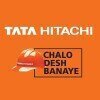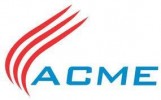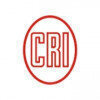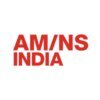Filter interviews by
Ashok Iron Works Junior Engineer - Quality Assurance Interview Questions and Answers
Ashok Iron Works Junior Engineer - Quality Assurance Interview Experiences
1 interview found
Interview Questionnaire
5 Questions
- Q1. All questions related to foundry, manufacturing process, design
- Q2. Types of sand, Properties of sand, Types of Metals
- Ans.
Sand types, properties and metal types are important for quality assurance in engineering.
Types of sand include silica sand, green sand, and resin-coated sand.
Properties of sand include grain size, shape, and texture.
Types of metals include ferrous metals (iron, steel) and non-ferrous metals (aluminum, copper).
Metal properties include strength, ductility, and conductivity.
- Q3. Melting point of some metals, Their properties, Where it is used
- Ans.
Melting points, properties, and uses of metals.
Metals have high melting points due to their strong metallic bonds.
Properties of metals include conductivity, malleability, and ductility.
Metals are used in construction, electronics, and transportation.
Examples of metals include iron, copper, aluminum, and gold.
- Q4. Type of Nuts, Bolts, Washers, Rivets, Measuring instruments
- Ans.
Various types of nuts, bolts, washers, rivets, and measuring instruments are used in quality assurance.
Different types of nuts include hex, wing, and cap nuts.
Bolts can be carriage, eye, or U-bolts.
Washers can be flat, lock, or fender washers.
Rivets can be solid or blind rivets.
Measuring instruments include calipers, micrometers, and gauges.
- Q5. Personal questions, salary expectation
Interview Preparation Tips
Experience: Based on experience and Percentage
Top trending discussions






Interview questions from similar companies

Quality Assurance Quality Control Engineer Interview Questions & Answers
Tata Hitachi Construction Machineryposted on 8 May 2024
(2 Questions)
- Q1. Difference between 2 stoke and 4stoke engine
- Ans.
2-stroke engines have power strokes every revolution, while 4-stroke engines have power strokes every other revolution.
2-stroke engines have a simpler design with fewer moving parts compared to 4-stroke engines.
2-stroke engines require a mix of oil and fuel for lubrication, while 4-stroke engines have a separate oil reservoir.
2-stroke engines are lighter and produce more power for their size, but are less fuel efficien...
- Q2. Least count of vernier caliper
- Ans.
The least count of a vernier caliper is the smallest measurement that can be read on the scale.
The least count is determined by the number of divisions on the main scale and the vernier scale.
It is calculated as the difference between one main scale division and one vernier scale division.
For example, if the main scale has divisions of 1 mm and the vernier scale has 10 divisions between two main scale divisions, the le
Interview Preparation Tips

Quality Assurance Officer Interview Questions & Answers
Acme Cleantech Solutionsposted on 30 Sep 2023
I applied via Naukri.com and was interviewed in Aug 2023. There were 2 interview rounds.

(2 Questions)
- Q1. Tell me about your self
- Q2. Tell me about industrial knowledge
- Ans.
Industrial knowledge refers to understanding of processes, regulations, and best practices within a specific industry.
Understanding of industry standards and regulations
Knowledge of manufacturing processes and quality control methods
Familiarity with industry-specific technologies and equipment
Awareness of current trends and developments in the industry
Experience working in similar industrial settings


(2 Questions)
- Q1. Tell me about yourself
- Q2. Technical question about pumps
Interview Preparation Tips
Ashok Iron Works Interview FAQs
Some of the top questions asked at the Ashok Iron Works Junior Engineer - Quality Assurance interview -
Tell us how to improve this page.
Ashok Iron Works Interviews By Designations
- Ashok Iron Works Account Assistant Interview Questions
- Ashok Iron Works Accounts Officer Interview Questions
- Ashok Iron Works Business Development Manager Interview Questions
- Ashok Iron Works Design Engineer Interview Questions
- Ashok Iron Works Development Engineer Interview Questions
- Ashok Iron Works Diploma Mechanical Engineer Interview Questions
- Ashok Iron Works Junior Engineer - Quality Assurance Interview Questions
- Ashok Iron Works Project Engineer Interview Questions
- Show more
Interview Questions for Popular Designations
- Quality Assurance Interview Questions
- Quality Assurance Officer Interview Questions
- Executive Quality Assurance Interview Questions
- Manager Quality Assurance Interview Questions
- Assistant Manager Quality Assurance Interview Questions
- Quality Assurance Engineer Interview Questions
- Senior Quality Assurance Engineer Interview Questions
- Quality Assurance Quality Control Engineer Interview Questions
- Show more
Interview Questions from Similar Companies
Ashok Iron Works Junior Engineer - Quality Assurance Reviews and Ratings
based on 1 review
Rating in categories
|
Senior Engineer
35
salaries
| ₹3 L/yr - ₹6.6 L/yr |
|
Quality Engineer
24
salaries
| ₹1.6 L/yr - ₹4.1 L/yr |
|
Engineer
23
salaries
| ₹1.9 L/yr - ₹4.4 L/yr |
|
Junior Engineer
22
salaries
| ₹1.2 L/yr - ₹3.2 L/yr |
|
Production Engineer
21
salaries
| ₹2.3 L/yr - ₹5.5 L/yr |

Tata Steel

JSW Steel

Steel Authority Of India

ArcelorMittal Nippon Steel
- Home >
- Interviews >
- Ashok Iron Works Interview Questions >
- Ashok Iron Works Junior Engineer - Quality Assurance Interview Questions












